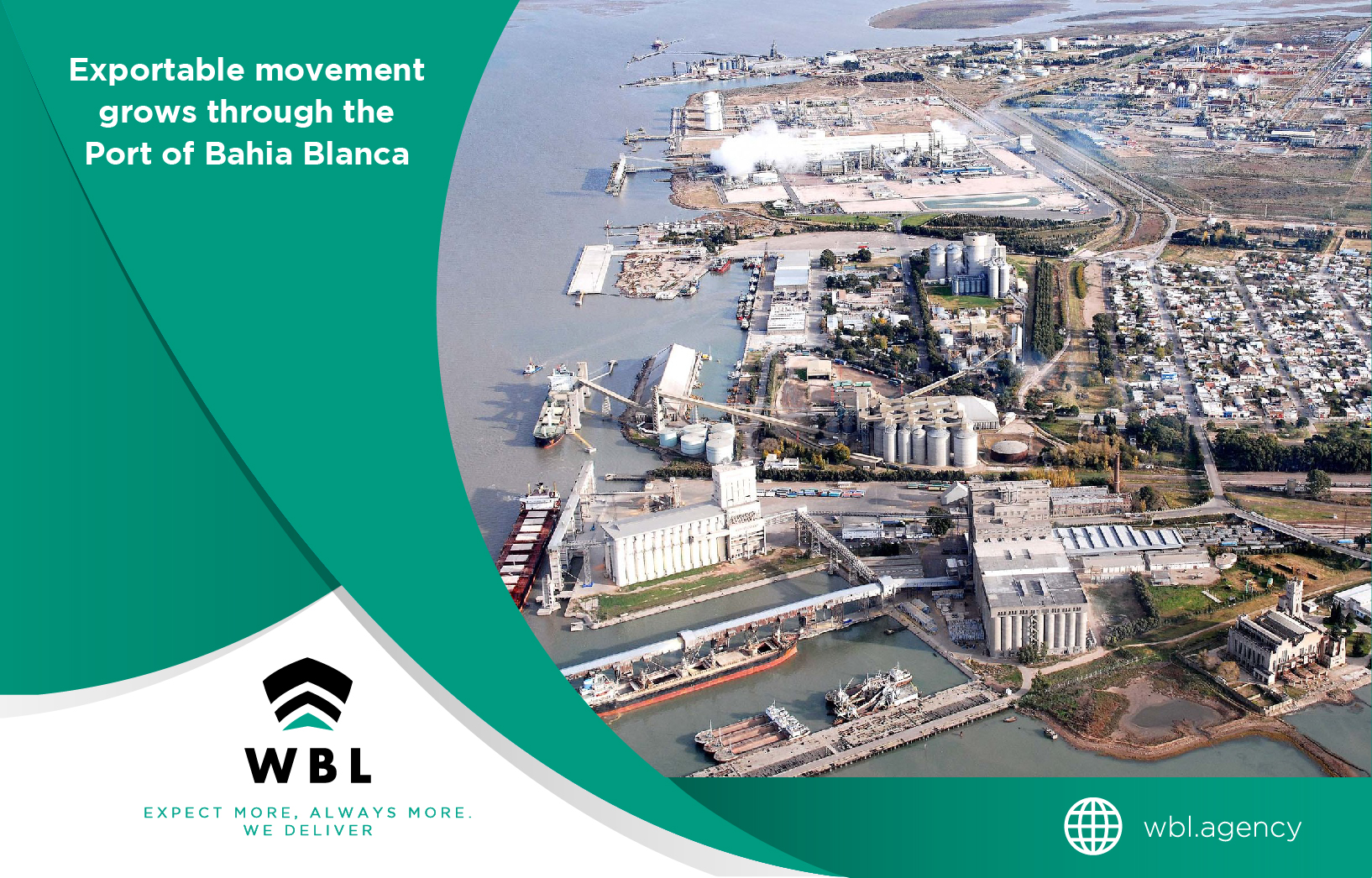Exportable movement grows through the Port of Bahia Blanca
The amount of merchandise moved increased by 5.5% in the first seven months of the year compared to the same previous period, with a volume of 9,806,411 tons.
The amount of merchandise mobilized through the Port of Bahía Blanca grew 5.5% in the first seven months of the year compared to the same previous period, with a volume of 9,806,411 tons, according to data from the Management Consortium of the Buenos Aires maritime terminal.
In the framework of a report on the first seven months of the year, the port authority indicated that “570 vessels transited the local estuary, the highest percentage being classified as bulk carriers.”
As indicated, within the framework of logistics during that period, “156,843 trucks and 42,031 wagons” were mobilized.
The document to which Télam had access also reported that, during last July, “1,423,008 tons” were mobilized, where those corresponding to grains, oils, and by-products were highlighted with “922,240 tons, exceeding by 2.2% in the same month of 2019 “.

“The main products that underpinned this figure are corn with 567,916 tons (up 20% compared to 2019) and soybeans with 297,654 tons (up 14% compared to 2019),” the report added. In this context, it indicated that Vietnam, Brazil, China, Saudi Arabia, Malaysia, and Indonesia, “became the main destinations for total exported goods in the first seven months of 2020.”
In the case of flammable and petrochemicals, it was reported that it had a rise of 75% with 274,512 tons moved in July.
The Consortium also reported that from the Multipurpose Dock “the merchandise mobilized exceeded 6,000 tons”, where “PVC, polyethylene, fruits, juices and alfalfa in containers” stood out.
While at site 5 of Puerto Galván, a public dock under the CGPBB’s orbit, the discharging of around 10,000 tons of fertilizers was carried out, the report added.
For his part, the president of the Consortium, Federico Susibelles, pointed out that “we worked in conjunction with the terminals and with land and rail transport at the time of reception”, since, “without this logistics, the port can’t have these numbers. “
“Our port was competitive and knew how to absorb what other ports could not export due to the downspout of the Paraná River,” said Susbielles, who indicated that “if the port was able to grow in this context” of a coronavirus pandemic, “it was due to the degree of responsibility assumed by all its actors “
